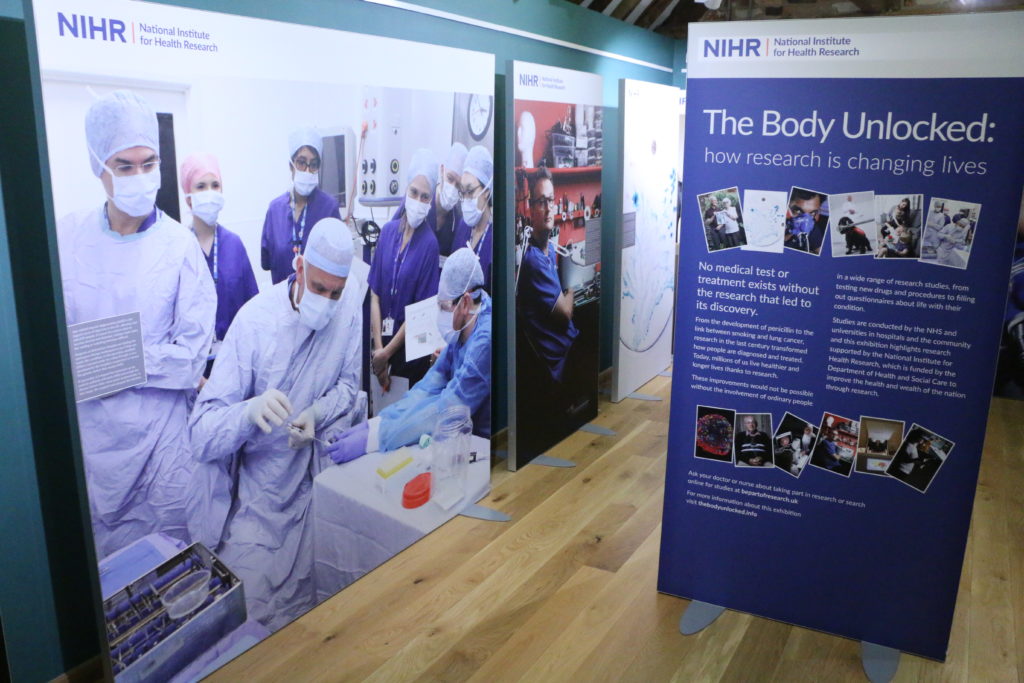A travelling photography exhibition showcasing ground-breaking NHS research taking place across the Thames Valley has opened in Newbury.

The exhibition, ‘The Body Unlocked: How Research is Changing Lives’, consists of two metre-high panels featuring people who have taken part in studies, researchers at work and microscopic images of cells and bacteria.
The exhibition is at West Berkshire Museum, The Wharf, Newbury until August 27, and will visit other venues around the Thames Valley. The exhibition was launched at Oxford’s Covered Market in February.
The studies highlighted in the exhibition are taking place in Berkshire, Buckinghamshire, Milton Keynes and Oxfordshire, with support from the National Institute for Health Research (NIHR), including the Oxford BRC.
Images include surgeons preparing a pioneering gene therapy injection for vision loss, dogs smelling urine to detect cancer, a close-up of cells responsible for controlling blood sugar and a virtual reality headset to treat mental illnesses.
Among those featured in the exhibition is Newbury’s Richard Lelliott, who took part in studies into the experiences of people with autism and mental illness after being diagnosed with the condition aged 47.
He said: “Volunteering for medical research helps build a greater understanding of medical conditions, improved assessment and treatment outcomes for patients. Volunteering does not necessarily help me directly, but what can be learned from my patient history could have serious benefits for others with autism.
“This exhibition is a great way for the public to learn about the life-changing medical research taking place here in Berkshire.”
The museum is open Wednesday to Friday from 10am to 4pm. Entry is free and COVID-19-secure measures are in place.
Research studies are an integral part of improving treatments in the NHS, public health and social care for conditions such as cancer, diabetes and psychosis. Learn more about taking part in research at bepartofresearch.uk.
Prof Belinda Lennox, Clinical Director for the NIHR Clinical Research Network Thames Valley and South Midlands, one of the NIHR partners behind the exhibition, said: “Health research is vital for developing new treatments in the NHS, improving the quality of the care that we provide and learning more about various conditions. We rely on the public to take part in this research, which can include anything from filling out surveys or giving a blood sample to trialling a new medication or treatment.
“This exhibition highlights the ground-breaking research taking place across the Thames Valley and we hope that it encourages the public to volunteer for studies in the NHS.”
Venues interested in hosting the exhibition can contact comms.crnthamesvalley@nihr.ac.uk.